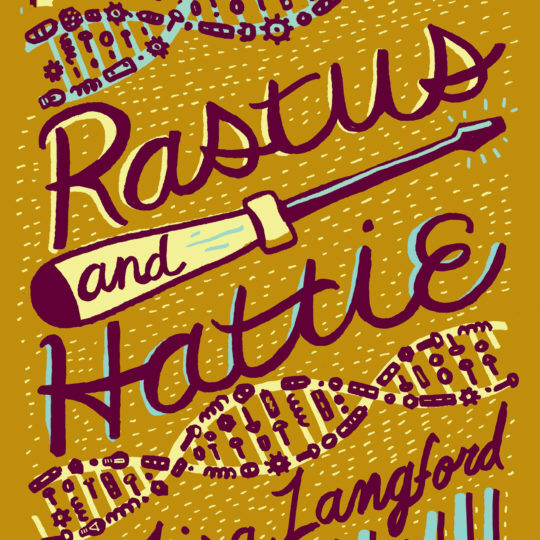I saw this play as an usher Monday night. This is the last weekend for it.
Cleveland theatre is a brave space, and I have seen many productions in the scene that deal with raising up marginalized voices and perspectives and American racism. Lisa Langford’s Rastus and Hattie takes the conversation up a notch and gives us an interesting take on current conversations about accountability, honest history, and the other webs of white supremacy. Lisa presents the idea that it might be possible to scientifically remove intergenerational trauma, and then gives the idea the ultimate challenge by putting four modern people in America’s past. Nicole Sumlin and Ananais J. Dixon bring this together. Sumlin is the scientist, new mother, and awkward social challenger to pursue this idea, even in her mind that it could be done, in the play. Dixon is her husband, who is loving, supportive, and challenging, and the couple’s love throughout these dramatic circumstances speaks to the nuances and complexities much needed to be seen in all mediums of entertainment. Sumlin and Dixon do an amazing job of de-centering the whiteness of Kolis and Seeholzer, who are supportive foils who drive the premise and the story about untended intergenerational trauma and how white people don’t help it because they can’t see it. The play looks at the reality of white fragility by having the white characters have robots that look like plantation slaves, and Kolis and Seeholzer capture the intent versus impact conversation that’s usually stuck on intent when their characters wonder what is up with Sumlin’s and Dixon’s characters responding as they do with how wrong, offensive, and dehumanizing it is to parade those images in front of them. The acting of the cast of Nicole Sumlin, Rachel Lee Kolis, Ananais J. Dixon, Adam Seeholzer, Darius J. Stubbs, Jeannine Gaskin, and Andrew Narten is beautiful, and a strong ensemble for this strong play. Kolis and Seeholzer do a brilliant job of dramatically articulating the usual centering around whiteness when a black or brown person talks about the realities of racism of their daily life, and the discussion of intent versus impact that Sumlin and Dixon have does a phenomenal job of bringing it to the front and center stage by calling them out, and rightfully so. Spoiler alert – when time jumps, we even see dimensions to Stubbs and Gaskin’s Rastus and Hattie that also center the reality of American racism that we don’t see in the first act because of the shock of the robots use to show the white gaze present in American society.
What makes this play stick with me is that it does break down my own white fragility, which in these times, needs to be broken. It makes me look at the privilege of whiteness and reminds me what I need to do to make the country more inclusive, safe, and human for everyone. It reminds me not to center my whiteness and to listen and take the cues respectfully. It puts the responsibility of today on our shoulders, and asks us what are we going to do with the history within us, and the traumas that inform us. It challenges me to think about extending restoration centered healing where trauma is a part of it, but not centered on that, without invalidating experiences. American racism does need to be held accounted for, and needs to be looked at honestly, and this play gives motivation to keep working on dismantling the inequitable systems of white privilege, the avoidance of history, and making conscious efforts to listen, be cued, and respect the rights and lives of people marginalized by race. Rastus and Hattie trusts the audience to leave the questions for us to think about and leave the theatre with, hopefully, an understanding to change and begin the process to change. It is comforting to know that this play’s rehearsal process offered similar questions, understandings, challenges, and intentional impacts for the director, whose sensitive strength is seen throughout the production. Anne McEvoy’s direction and centering Lisa’s visions is as empowering as it is emboldened.
This play is receiving all the attention it deserves, and it would be foolish to miss this production. I consider it to be one of the best productions of 2019. Your knees will shake, your fragility will break, but your heart will make you enjoy this production.


